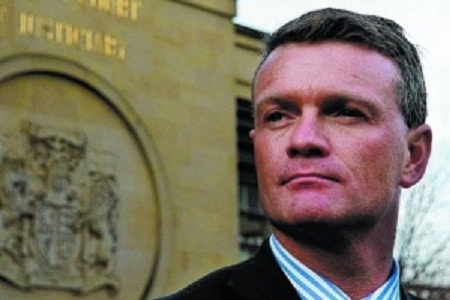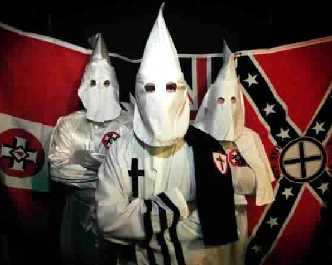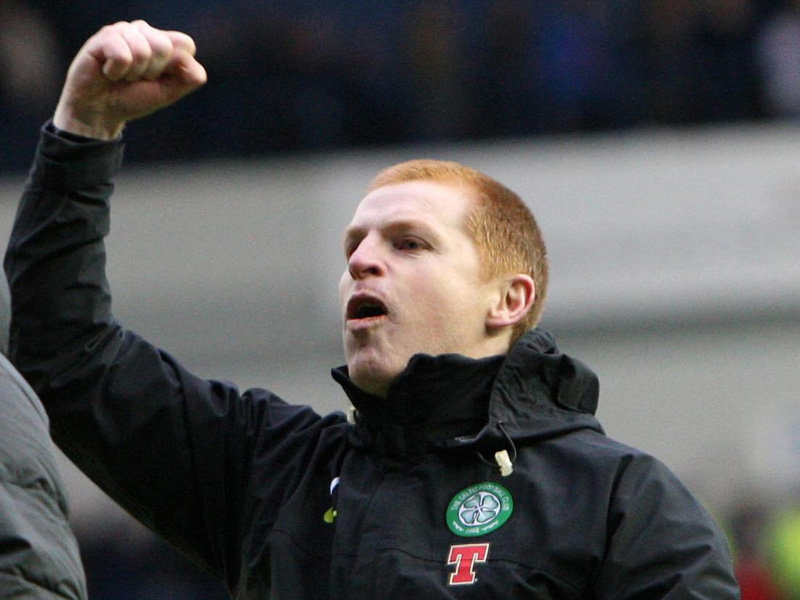The Eve of War
The news, announced informally in late October 2009, by Ranger’s manager Walter Smith that Glasgow Rangers were in effect being run by their bank, Lloyds TSB because their rising debt (£17M to £31M from 2006 to 2009) was no longer acceptable to Lloyds, not only gave Rangers problems of reducing the cost and, over time, the quality of its squad. It had a wider and unforeseen effect in terms of creating the conditions for war to ensue. What changed when Rangers financial position became clearer (though still muddied) was that winning the SPL title and so access to CL millions was no longer a desirable aim with the associated gloating rights. In the eyes of many of the Celtic support it had become an essential aim for Rangers to which survival rights had now become attached. In effect a whole new ball game, where if Rangers lost the title they died, at least as the major force in Scottish Football, if not actually having to enter formal administration.
In the previous season 2008/09 Rangers did win the title when Celtic failed to take advantage of a New Year points lead under Gordon Strachan and score in a couple of games in the run in. That title loss may well have kept Rangers alive, given what was revealed a few months later by Walter Smith and what has emerged on the HMRC front since. The loss of the title was put down to Celtic’s failure to strengthen the team in January 2009, for which Peter Lawwell’s grave headstone will bear the inscription (according to a statement by the man himself at the first Celtic Roadshow).
However in season 2009/2010 under new manager “take it on the chin Tony Mowbray” Celtic faltered badly through a combination of inept football management and equally inept refereeing. The referee “faltering” started at Ibrox in early October 2009 when Craig Thomson admitted to the first of what has become known as honest mistakes, when he denied Celtic at least one stonewall and two other strong penalty claims. (To continue with the science fiction theme, it was the shape of things to come.) There is circulating in Celtic cyberspace what has become known as the 40 Honest Mistakes, a list of refereeing match changing, point costing decisions ranging from highly questionable to incomprehensible that either cost Celtic points or prevented Rangers losing them during season 2009/2010. These mistakes continued to occur into 2010/11.
The Dawn of War.
In February 2010 Scott Brown was harshly ordered of by referee Dougie McDonald (more of whom later) for an incident with Kyle Lafferty that Sky Sports described as “more petulant than violent”. Rangers won 1-0 but what incensed the Celtic support was McDonald’s refusal to admit he had got things wrong when the ordering off was appealed under an appeal process that allowed the judge to judge himself. So incensed were the support that a good number turned out at the third of a series of Open Meetings of Celtic supporter groups, viz the Celtic Supporter’s Association (CSA), the Celtic Supporters Trust (CST), the Green Brigade as well as various individual supporters held at St Mary’s Calton, arranged and facilitated by the CST. From that meeting came a letter for Celtic to deliver to the SFA stating that the Celtic supporters had lost confidence in the ability of the SFA to administer the game properly and asked for the introduction of more transparency and accountability in their processes, referring to the exercise being carried out by Henry McLeish as a possible means of doing so. It also asked that the Review Panel and Appeals process be changed to stop the referee from being the judge of his own decisions. A letter to this end was delivered to the SFA in April 2010 accompanied by the threat of a boycott led by the CSA, but in the event, the then SFA CEO Gordon Smith, who had overseen the workings of the Review Panel, resigned shortly after its delivery, and changes were promised to take the referee out of his blocking position in the Appeals loop, so no further action was necessary on the appeals issue that had triggered the anger.
However the issue of greater transparency and accountability, which was essentially aimed at curtailing honest mistakes, had still to be pursued, but in the absence of an SFA CEO it was decided to await the arrival of a new CEO. The CST acting for all Open Meeting parties did however have a meeting with Henry McLeish on the issue of more transparent and accountable governance and it looks from his final report that he took on board and agreed with the points made to him by them. So Celtic, or more accurately, the Celtic support, with Celtic’s help, won the first skirmish and looked forward to dealing with the new CEO on his arrival in October on the major issue of transparency/accountability.
Then on 17th October 2010 at Tannadice v Dundee United, Dougie McDonald, the same referee who had been responsible for the initial skirmish, when he ordered off Scott Brown, set loose the dogs of war through the “DougieGate”, escalating matters to a whole new level.
It is not the events of that day, which everyone is now so familiar with they need no repeating but the lie told to the Celtic manager that became the causus belli.
War Breaks Out
Celtic CEO Peter Lawwell had a meeting with Stewart Regan the new SFA CEO on 3rd November and came to an agreement on reform at the SFA. This was welcomed by the CST who said the following on their web site:
“ The Celtic Supporters Association, along with the Celtic Trust, the Affiliation of Registered Celtic Supporters Clubs, and the North American Federation of Celtic Supporters Clubs are 100% behind Celtic Football Club in their campaign for fair and just treatment within Scottish Football.
We have already submitted a letter to the powers that be asking for a more transparent and just system, and for there to be accountability within the system. There has been no response to that letter so far.”
In the event the SFA did reply declining a meeting presumably on the grounds that they had reached an agreement with Celtic (and probably because by then they had a referee strike to deal with).
All then went quiet, until Celtic Chairman Dr John Reid spoke at the Celtic AGM on 18th November about their dealings with the SFA, when he signalled an end to the unhealthy relationship that existed between Celtic and the SFA with the words “Those days are gone”.
However in early January 2011 the SFA Disciplinary Committee seemed to disagree, when after an Appeal, they extended a automatic 2 game touchline ban on manager Neil Lennon to 6 for his behaviour at Tynescastle, on the grounds of excessive misconduct.
Celtic reminded the SFA that “those days have gone” when they again appealed on the grounds that the punishment was excessive and unprecedented for a first offence. A QC was hired to fight the Celtic manager’s case.
To add salt to the wound, referee Wullie Collum and his assistant Mr Murphy, allowed a point costing goal against Celtic at Hamilton where, according to the subsequent justifications the media provided (rather than the SFA officially admit the decision to allow the goal to stand was plain wrong), clubs would need to have a list of referees who follow the Collum/Murphy interpretation of the rules and those who stick to the official version, in order to organise their defences.
Celtic supporters too were angry at the SFA attitude towards Neil Lennon which led to the General Secretary of the CSA proposing a boycott of the game at Kilmarnock, whose Chairman was on the Disciplinary Board, to take place at the fixture in early March.
The effect of this manifestation of the support’s anger was to help bring about the meeting with SFA CEO Mr Regan that the Celtic supporters had been seeking in the follow up to the original letter of the previous spring, but with the welcome addition of Mr Neil Doncaster, CEO of the SPL along with Celtic CEO Peter Lawwell.
A report back on that meeting was provided on the CSA web site at
http://www.celticsupporterassoc.co.uk/content.php?r=120-latest-on-the-Bhoycott where it said
“ Mr Regan informed us that they were already planning to implement the Mc Leish review, and that they hoped they could get it passed at the SFA’s AGM in June, and implemented by the start of next season”
and on the basis of the assurances given the boycott threat was lifted. However what is in the McLeish report that makes these assurances acceptable?
The Brave New World (and how to get there)
The Henry McLeish report sets the blue print and encourages the belief that change will happen in these words under
The SFA: summary of key issues (page 75)
“But more controversially the work of the SFA can often look like serving the institution, its traditions and procedures, its members and narrow interests-personal or sectional and in doing so becoming incredibly defensive in
relation to the wider world within which football operates. This is a block on progress, grasping opportunities and exploiting potential and in getting to grips with modern business approaches, the changing world of football and the massive weight of national expectation on the game
The health and well being of our club and national game have to be more important than any sectional interests and we need structures to reflect football in the 21st century and not the practices and methods of the late 20th century. This is the challenge, respecting the past but no longer being a prisoner of it.”
Quick Fix?
All well and good, but what of the transparency and accountability of referees, how will this be improved? I believe there are two issues here, one short term and immediate the other longer term. How the McLeish Report will address the longer term issues will be looked at further down, but in the more immediate timeframe of this season, as a Celtic supporter, I would be looking at the introduction of (or confirmation of the existence of) a monitoring process that checked referee’s performances for consistency, not just during a game but from game to game.
We all complain about lack of consistency with referees and whilst it might be difficult to make any two referees act consistently, it should be possible, as a matter of training and monitoring, to point out to a referee/assistant where he had made a different decision in one game in similar circumstances to another. This is not to suggest anything untoward, but to get a referee himself thinking about HIS consistent application of the law. It should not be impossible to review and evaluate the performance of the same referee over a number of games for such consistency given the availability of match day video with improvement the aim.
I would not have expected the aforesaid meeting with the SFA to go into this level of detail, but following this practice is one measure that quite quickly would try to address inconsistency and so benefit the game overall, without casting any aspersions on the integrity of match officials.
Indeed it could be their first line of defence that they were being monitored for inconsistency and so always endeavoured to be consistent. Hopefully the Willie Collum performance at Hamilton was simply poor refereeing and that level of decision making will not feature for the rest of this season, although how Samaras was called offside at Ibrox in the Cup is a hefty counter argument that it might. The Celtic support, indeed all supporters, do want to see some measures to improve consistency Mr Regan, but the sooner the better.
Longer Term
On the longer term changes to the Referee service, this from The McLeish Report is again encouraging. It says under:
5.6 SFA Board Committee Structure
5. A new and more focused “Professional Football Partnership” should be established to provide the machinery for dealing with the issues that the SFA has to address that relate exclusively to the professional game
6. The focus of the Professional Football Partnership would be to promote the integrity and well being of the game, on field quality, the highest standards of conduct and the interests of fans and consumers.
7. All the regulation, discipline, licensing and enforcement functions of the SFA, ranging from on field discipline through to an reporting obligations should be carried out by a new “Regulation, Compliance and Disciplinary Panel”. This new structure would help tackle the kind of issue that immerged during the recent referee’s dispute.
8. To strengthen the Panel and to demonstrate its independence from conflicts of
interest and unwarranted interference it is proposed that it should be semiautonomous and operate at arm’s-length, although subject to (published) policy direction of the Board. It should publicly report its activities to the SFA Board and to stakeholders at large, in a way similar to many of the independent regulatory organisations created by the government over the past two decades
9. Within the unit and the work of its panels there should be a clear separation between the functions associated with “decisions to charge” and the convening of “judicial bodies” to hear cases and appeals.
10. Independent people from outside the game should have a key role. A degree of independence within the structure is essential to maintain respect, trust and confidence and to ensure the pursuit of justice is transparent and accountable and is not undermined by self-interest.
Based on my own experience as a retired business/IT manager at various levels and using what is now taken for granted as standard business wisdom, the principles behind the above statements go some way to addressing why the SFA has been able to operate as it has to the detriment of our game for years and that is because it has enjoyed monopoly status.
Monopolies were recognised 20 years ago or more as being an inefficient way to organise a business. Even if standards existed, monopolies set their own standards, they measured them, they rewarded themselves for meeting what they measured and as sure as night follows day, they provided a bad service. Those of us old enough will remember how long it took BT to fix a phone problem, in fact if you complained; a 2 week wait became 6 weeks! Sound familiar?
So for the good of Scottish Football the monopoly that is the SFA must be broken up, so that the supply of ALL the services they provide to football remains with them, but the right to measure that service and perhaps pick and choose which ones best meet their needs is either given to the users of their service or, as
seems to be proposed in the McLeish report, at least removed from the providers.
Personally, I would go the whole hog, but however it is done, the separation of supply and monitoring/evaluation is essential. At a distance the users of the SFA services are the supporters of football on whose behalf clubs act, but close up to the SFA the “customers” are the clubs in the SPL, SFL etc who are acting on their support’s behalf.
Just how would a separation of responsibilities that went the whole hog of separation of supplier and customer work for the refereeing service?
Well the SFA would continue to recruit, train and supply referees of an agreed standard to the leagues, but the SPL/SFL etc (or an independent body operating at arms length) would be responsible for the setting of that standard, monitoring and evaluation of performances (using ex referees or other referees from elsewhere to do so). There would be the equivalent of a Service Level Agreement between both parties that made allowances for error but where a referee had failed to reach the required level (including consistency levels) over the number of games specified in the agreement, appropriate steps to correct would be instigated by the service user (the SPL) and a course of action to improve performance agreed with the SFA before a referee could be used again at that level. On the positive side for referees it could include meaningful bonuses for consistently good performances.
However what if under that arrangement, we were to find ourselves in the position Scotland seems to find itself now, where we have a shortage of enough referees of the required standard? We would do what football or the NHS or any business does, we would bring in footballers/nurses/referees from elsewhere, who meet the required standard. Scotland is a small country; it is no shame if we admit that we just cannot produce enough good Grade 1 referees from our population. We tacitly accept this without shame for our footballers, so why not our referees?
This arrangement would address the other major factor that causes monopolies to be inefficient – lack of competition. There is nothing quite like competition to raise standards. I know, I had a department market tested (we won by improving performance) but if the SFA know that the SPL are free to go elsewhere for referees, you can be sure they will be doing their best to supply the best and they in turn will be doing their best to stay the best.
So there you have a long term solution, one that goes much wider than Celtic, who have simply taken the lead (and been pilloried for it), one which will benefit ALL of Scottish football and one which has been available for the past 20 odd years. A solution however that no one could even get near to looking at because of the preconceived idea, promoted and used by the Scottish media, that the underlying cause for different decisions was religion, and the fear what finding that to be the case might mean. It may well be a factor, but so too is demography and human competence/incompetence, all part of the wonderful human condition.
Creating the conditions where referees from elsewhere could openly be used if we cannot supply enough of our own must surely be for the good of our game? Indeed such a separation of responsibilities could lead at a later point to the use of professional referees as the private sector look to make a business of offering professionally trained referees to take up any shortfall that arises as a result of standards being raised.
AT THE END OF THE DAY THE CAUSE IS IRRELEVANT IF THE SOLUTION WORKS.
If this is a crisis for the SFA it is also an opportunity for them to end the War and restore belief in the integrity of Scottish football, under the watchful (and sometimes cynical ) eye of not just the Celtic support but indeed all Scottish football supporters with the good of our game at heart.
Post script.
My apologies for such a long article but the issues are complex and could not be reduced to forum or blog sound bites.
There is another major issue at play here and I think I can say, as someone who as an observer, reporter, and participant, has had the good fortune to meet and/or talk to many good Celtic men and women, who fought the war at many levels on the ground and in Celtic cyberspace, that a lesson to emerge from all of the foregoing is that what happened to create the conditions for and bring about change, provides evidence of the ability of the support AND Celtic, acting together, to make change for the good of the game in Scotland.
Some foundations have been laid and models/principles for building on them (see
for further reading) were taken on board by Celtic at the last AGM, using part of a proposed club Membership Scheme as the vehicle for continuing improvements in communications and dialogue..
Whilst it is great that we are beginning to see a Celtic on the field of play that again warms our hearts, rather than turn them cold, it would be remiss not to build on those non football foundations laid in the last year, so that should we ever face another footballing winter, we can face it more warmly, through being supporters and members of Celtic FC, a future where we are Celtic connected and Celtic united.
More on this as matters develop.





